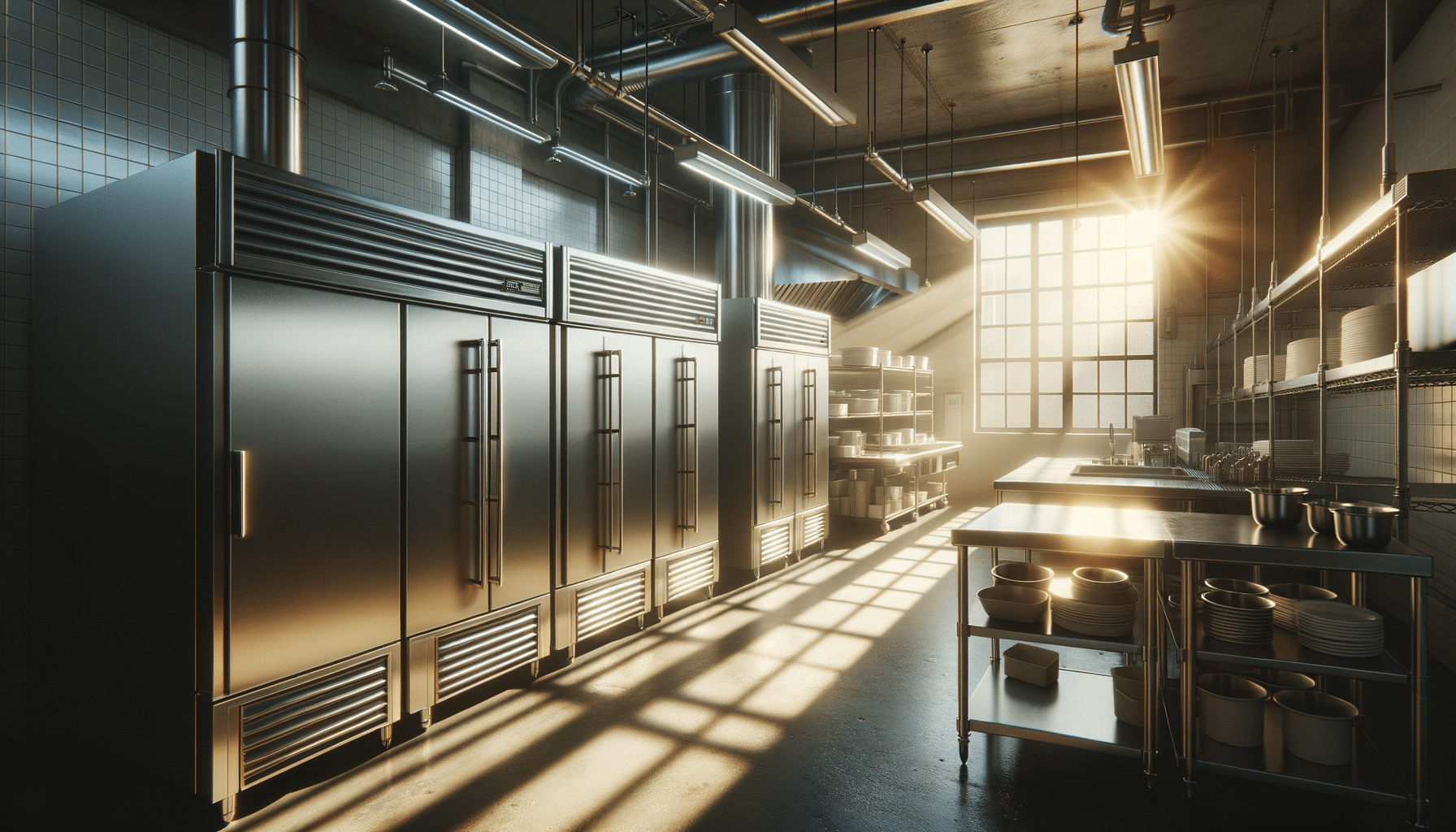
“Choosing the Perfect Commercial Refrigerator: A Comprehensive Guide for Business Success”
Introduction to Commercial Refrigerators
In the bustling world of food service and retail, the commercial refrigerator stands as a cornerstone of operational efficiency. Whether you’re running a restaurant, a convenience store, or a catering business, maintaining the freshness and safety of perishable goods is non-negotiable. The right commercial refrigerator not only ensures food safety but also contributes to energy savings and operational efficiency. In this guide, we will explore the essential factors to consider when purchasing a commercial refrigerator, ensuring that you make an informed decision that aligns with your business needs.
Understanding Your Business Needs
Before diving into the specifications and features of commercial refrigerators, it’s important to assess your business requirements. Different businesses have varying needs based on their size, volume of food storage, and customer demand. Here are some considerations:
- Storage Capacity: Assess the volume of products you need to store. A restaurant may require larger units compared to a small café.
- Type of Goods: Consider whether you need to store fresh produce, frozen items, or both. This will influence whether you need a refrigerator, a freezer, or a combination unit.
- Space Availability: Evaluate the space available in your business premises to accommodate the refrigerator. Measure the dimensions carefully to ensure a good fit.
- Energy Efficiency: Opt for models that offer energy-saving features to reduce operational costs over time.
By clearly defining these needs, you can narrow down your options and focus on models that offer the features you require.
Types of Commercial Refrigerators
Commercial refrigerators come in various types, each designed to meet specific needs. Understanding these types will help you make a suitable choice for your business:
- Reach-In Refrigerators: Ideal for kitchens with limited space, these units provide easy access to stored items and are typically used for short-term storage.
- Walk-In Coolers: Best for large-scale operations, these provide ample storage space and are perfect for bulk storage of perishable items.
- Display Refrigerators: Often used in retail settings, these units are designed to showcase products to customers while keeping them fresh.
- Undercounter Refrigerators: These are compact and fit under countertops, making them a great choice for space-constrained environments.
Each type has its own advantages and is suited to different business models and space constraints.
Key Features to Consider
When selecting a commercial refrigerator, it’s crucial to evaluate the features that will benefit your business operations. Here are some key features to look for:
- Temperature Control: Look for models with precise temperature control to ensure optimal storage conditions for different types of food.
- Compressor Type: Consider the type of compressor, as it affects the unit’s efficiency and noise level. Options include top-mount, bottom-mount, and side-mount compressors.
- Door Type: Choose between solid or glass doors based on visibility needs and energy efficiency preferences.
- Defrost System: Automatic defrost systems reduce maintenance efforts and ensure the unit operates efficiently.
These features not only enhance the functionality of the refrigerator but also contribute to the overall efficiency of your business.
Maintenance and Longevity
Investing in a commercial refrigerator is a significant expense, and ensuring its longevity requires regular maintenance. Here are some maintenance tips to extend the life of your unit:
- Regular Cleaning: Clean the interior and exterior surfaces regularly to prevent the buildup of grime and bacteria.
- Check Seals and Gaskets: Inspect door seals and gaskets for wear and tear, as damaged seals can lead to energy loss.
- Monitor Temperature Settings: Regularly check and calibrate the temperature settings to ensure the unit is operating efficiently.
- Professional Servicing: Schedule routine maintenance checks with a professional technician to address any potential issues before they escalate.
By following these maintenance practices, you can ensure that your commercial refrigerator remains in optimal condition and serves your business effectively for years to come.
Conclusion: Making the Right Choice
Selecting the right commercial refrigerator is a decision that impacts the core operations of your business. By understanding your specific needs, exploring different types, evaluating key features, and committing to regular maintenance, you can make an informed choice that supports your business goals. Remember, the right refrigerator not only preserves your products but also enhances the efficiency and sustainability of your operations. Take the time to research and invest wisely, ensuring that your commercial refrigerator becomes a reliable asset to your business.


